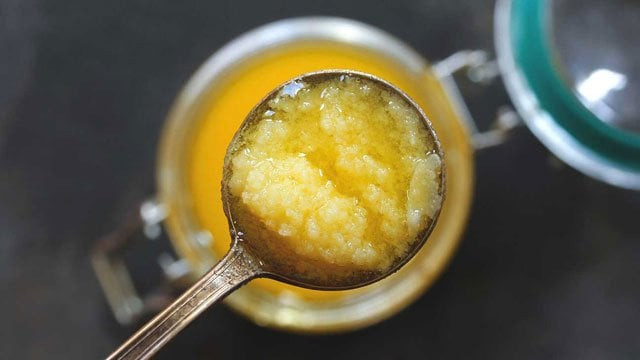The skyrocketing prices of edible oil
Palm oil prices move both ways but people forced to pay higher cooking oil rates

Prices of edible oil, ghee and related products were adjusted upwards several times during the previous year.
In January 2021, cooking oil was sold for Rs289 per kg whereas in January 2022 its price was standing at Rs399 a kg.
Despite the fact that prices of palm oil have fluctuated both ways, but end-consumers have faced only increase in prices of cooking oil.
In the wake of Covid-19, the world is providing relief for its people. On the contrary, Pakistanis are still struggling with sizeable price hikes in the case of edible oil.
Since Pakistan’s edible oil industry has been continuing to depend heavily on imported palm oil, the rise in prices is well understood. It has been the third largest importer of palm oil for the past couple of years, according to the United States Department of Agriculture (USDA).
The annual analytical report on external trade statistics of Pakistan (FY21) by Pakistan Bureau of Statistics (PBS) revealed that imports of palm oil increased by 7.64% quantity wise, which stood at 3.197 million tonnes in FY21 against 2.97 million tonnes in the previous fiscal year (FY20).
However, the rise in palm oil prices in international markets and increase in the quantity imported both have hit Pakistan separately.
The PBS report also shows an extra burden of 44.9% on the import bill from only palm oil, which cost $2.66 billion in FY21 against $1.84 billion in FY20.
Being an agricultural country, Pakistan has the potential to minimise the reliance on imported raw material for the production of edible oil and ghee.
The widening gap between the locally produced and imported raw material of the oil industry is damaging for Pakistan’s external sector.
In the past, governments made efforts as they introduced the Oilseed Programme, with the help of Pakistan Agricultural Research Council (PARC), to boost the oilseed production and succeeded to some extent.
Also, the current government has introduced a project named “National Oilseeds Enhancement Programme” (NOEP).
The Rs10.96 billion project was started by the Ministry of National Food Security and Research, under the Prime Minister’s Agriculture Emergency Programme, at the end of first quarter of FY20 and is due to be completed in the last month of FY24.
The programme is intended to provide 50% subsidy on the purchase of oilseed machinery and Rs5,000 per acre for seed input along with the provision of quality seeds to increase the yield of crops.
After the introduction of the programme, Pakistan achieved some success as its production increased by 68,000 tonnes year-on-year.
Economic surveys of Pakistan have shown that the production of edible oil in FY19 and FY20 stood at 0.47 million tonnes and 0.54 million tonnes respectively.
Production of 0.54 million tonnes was a good sign but still covered only 15-18% of edible oil imports.
Also, during the past six months of the ongoing fiscal year, Pakistan witnessed almost 60% growth in spending on palm oil imports, ie $1.671 billion as compared to $1.04 billion in the same period of FY21, the State Bank of Pakistan (SBP) reported.
Besides the imported palm oil, the local production of oilseed comprises mainly cottonseed, ie more than 50%.
Had cotton production not dropped by 22.8% in FY21, the import bill would have been lesser than what was paid.
So ramping up production of mainly cottonseeds as well as other seeds (rapeseed, mustard, sunflower and canola) will eventually be helpful in minimising the spending on imports.
Owing to the unusual and rapid increase in prices of Pakistani brands of cooking oil, some people seized the opportunity and started smuggling Iranian edible oil, which resulted in a sudden surge in the supply of cheap Iranian cooking oil.
Throughout the previous year, Pakistan Vanaspati Manufacturers Association (PVMA) had been striving to win a reduction in import duties and other levies to avoid further burdening the end-consumers.
They have not succeeded even after the announcement in October last year, as the government reverted to earlier numbers.
PVMA has written again to the Ministry of Finance, hoping that the government would resolve both the problems, ie the saturation of domestic markets with the smuggled Iranian products and the reduction in import duties to slash costs.
The writer is a mechanical engineer and is doing masters
Published in The Express Tribune, February 14th, 2022.
Like Business on Facebook, follow @TribuneBiz on Twitter to stay informed and join in the conversation.



















COMMENTS
Comments are moderated and generally will be posted if they are on-topic and not abusive.
For more information, please see our Comments FAQ